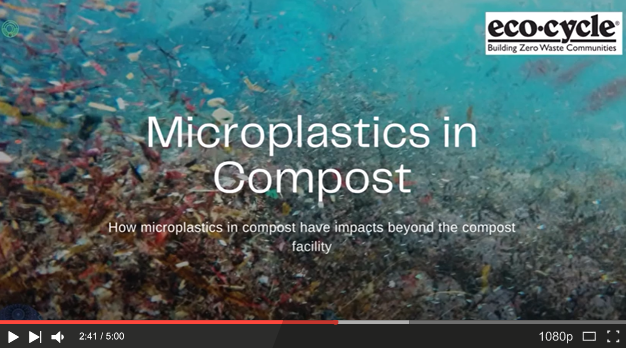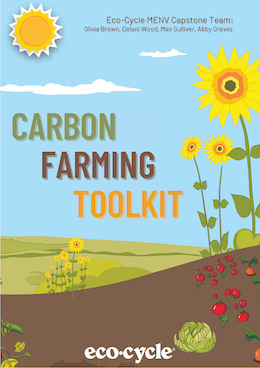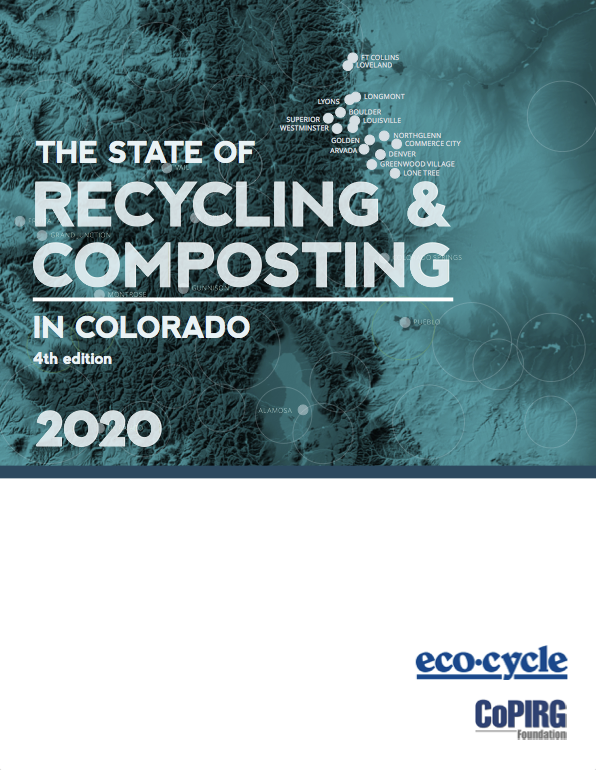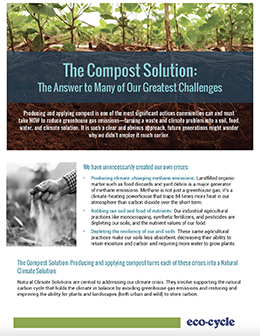Join the Cool Boulder Initiative
One of the most exciting and hopeful solutions to climate change are “Natural Climate Solutions.” When we look for technologies to help reverse our climate crisis, no technology out-performs nature. Our lands—our forests, open spaces, agricultural lands, and even our urban landscapes—offer abundant opportunities for storing carbon from the atmosphere, reducing carbon emissions, and helping communities adapt to increasing effects brought on by climate change.
Enter the Cool Boulder Campaign initiative. The City of Boulder is working with many community partners, including Eco-Cycle, as well as Boulder residents, to empower community-led, nature-based climate action. The campaign supports and mobilizes residents within the city of Boulder to regenerate our soils, trees, and habitats for a resilient community, climate, and future. The campaign will focus particularly on creating absorbent landscapes and expanding vegetation and tree cover in ways that reduce temperatures and promote critical pollinator habitat.
The dramatic climatic extremes of the last year, when relatively temperate places like the Pacific Northwest reached 120°F and beyond, as well as our experiences with the devastating Marshall Fire at the end of 2021, brought home the impacts of rapidly advancing climate change. Communities must begin preparing for climatic extremes never before experienced. A host of scientific reports have underscored that the shading and evaporative cooling provided by trees and other plants will be an increasingly critical part of keeping communities safe and livable. Alongside the climate crisis, we are facing unprecedented loss of biodiversity, particularly the loss of crucial native pollinators.
Planting and protecting trees and creating more diverse habitats for local species in cities can help address the impacts of both climate change and loss of biodiversity. Much of this work will need to take place on private land, like backyards and business parks, and will need to be led by community members. City departments can provide support and training, but the scale of the changes needed will not be possible without the commitment of thousands of engaged residents.
What is Cool Boulder?
The three initial focus areas for the Cool Boulder Campaign are: (1) Connected Canopies, expanding urban forests; (2) Pollinator Pathways, creating connected “cool corridors” that provide habitat for pollinators and other species; and (3) Absorbent Landscapes, enhancing the ways that landscaped areas, natural lands, and working lands absorb carbon, water, and solar energy.
![]() Connected Canopies: To help reduce temperatures and expand access to the benefits of urban trees, Boulder needs major investments in maintaining the health of its existing tree canopy and we need to plant thousands of additional trees—largely on private land. This work builds on a recent regional strategy for urban forestry expansion.
Connected Canopies: To help reduce temperatures and expand access to the benefits of urban trees, Boulder needs major investments in maintaining the health of its existing tree canopy and we need to plant thousands of additional trees—largely on private land. This work builds on a recent regional strategy for urban forestry expansion.
![]() Pollinator Pathways: Pollinator Pathways are corridors of diverse plants that support cooling temperatures and foster biodiversity, especially for native pollinators. Creating and expanding an interconnected network of these corridors will provide important habitat and help manage carbon and water in ways that reduce the impacts of climate change.
Pollinator Pathways: Pollinator Pathways are corridors of diverse plants that support cooling temperatures and foster biodiversity, especially for native pollinators. Creating and expanding an interconnected network of these corridors will provide important habitat and help manage carbon and water in ways that reduce the impacts of climate change.
![]() Absorbent Landscapes: This will be a collaborative effort focused on improving carbon sequestration, soil health, and water management in landscaped areas within the city and in the working lands surrounding Boulder.
Absorbent Landscapes: This will be a collaborative effort focused on improving carbon sequestration, soil health, and water management in landscaped areas within the city and in the working lands surrounding Boulder.
Sign Up Today
The City of Boulder’s Cool Boulder Initiative offers a variety of ways each of us can help build a more climate-resilient community. There are five main teams—choose one, some, or all! Learn more about each opportunity to participate and sign up at coolboulder.org.
(NOTE: While this pilot initiative will take place in the city of Boulder, the intention is to develop a model that can be shared with other Boulder County communities and beyond. Everyone is invited to participate, though you will need to travel into Boulder for hands-on elements.)
Plant and Protect
This team will literally “dig in” and help plant and maintain trees, pollinator habitat, and other important landscape features like shrubs.
Grow and Share
This team will help create a supply of plants and critical support materials needed for planting success, including high-quality soil, compost, biochar, and mulch in ways that lower cost and increase accessibility.
Become a Community Resource
Participants in these teams will be trained to help community members with plant selection, planting guidelines and best practices, ongoing maintenance, and problem identification and solutions.
Become a Community Scientist
Participants in this action area will have the opportunity to join one or more teams gathering data critical to developing natural climate solutions. These areas include (1) urban heat mapping; (2) bee/invertebrate surveys; and (3) soils and land health assessment.



























